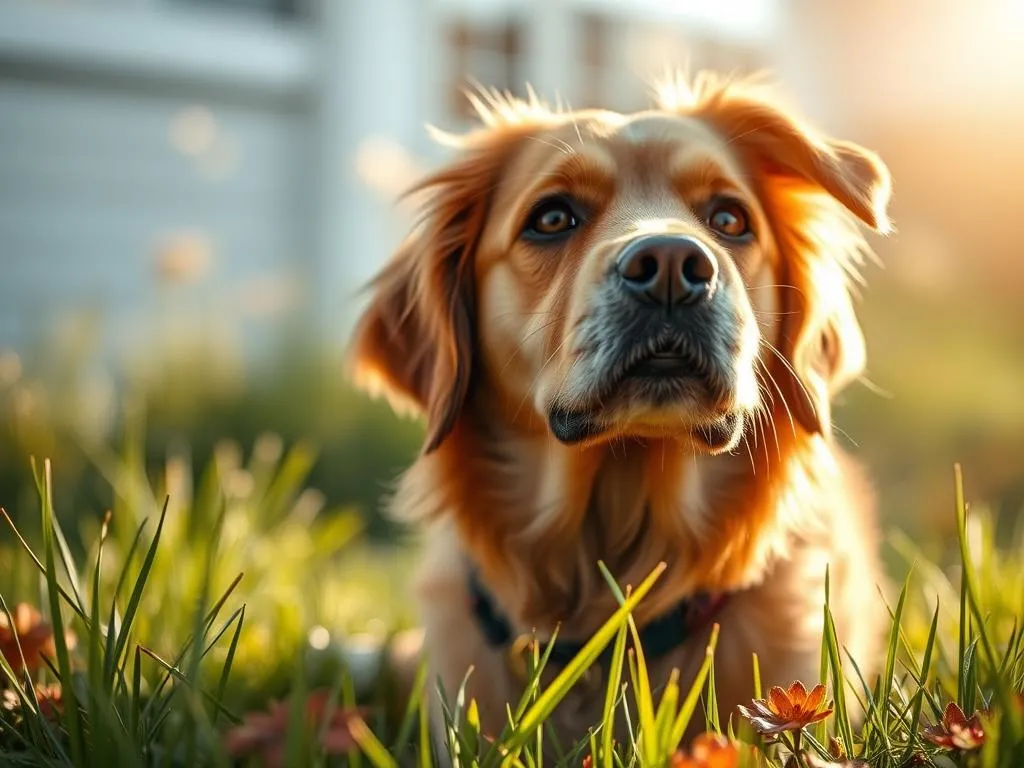
Introduction
Understanding dog behavior is crucial for pet owners who wish to foster a harmonious relationship with their furry companions. Dogs, as social animals, communicate their feelings and needs through a variety of behaviors. One particularly concerning behavior that many dog owners encounter is when their dog pees upon their return home. This seemingly puzzling act can be distressing for both the dog and the owner. Consequently, it is essential to address this behavior not just to maintain cleanliness, but also for the overall well-being of both parties involved.
In this article, we will delve into the reasons behind why dogs exhibit this behavior and explore several strategies to manage it effectively. Understanding why does dog pee when I come home can lead to a more fulfilling relationship between you and your pet.
Understanding Dog Behavior
The Basics of Canine Behavior
Dogs have evolved alongside humans, and their behaviors often stem from instinctual drives and social structures. A dog’s behavior is influenced by a combination of genetics, early life experiences, and socialization with other dogs and humans. Understanding these basics can provide insight into why certain behaviors, such as urination, occur.
Factors Influencing Dog Behavior
Several factors contribute to canine behavior:
- Genetics and Breed Tendencies: Different breeds exhibit varying behaviors. For example, hunting breeds may have more energy and require more exercise than smaller lap dogs.
- Environment and Socialization: Dogs that are well-socialized from a young age tend to adapt better to different situations and are less likely to display anxiety-driven behaviors.
- Training and Owner Behavior: A dog’s behavior can also be significantly influenced by its owner. Consistent training and positive reinforcement can encourage desired behaviors.
The Phenomenon of Peeing Upon Owner’s Return
Common Reasons for This Behavior
When a dog pees upon your arrival, it could stem from a couple of primary reasons:
-
Submissive Urination: This response is common in puppies and some adult dogs who feel the need to show submission to a more dominant figure, often their owners. It’s an instinctual behavior that can sometimes be misinterpreted as a lack of house training.
-
Excitement Urination: Some dogs simply cannot contain their excitement when they see their owners after a long day apart. This excitement can lead to involuntary urination, especially if the dog has not been adequately trained to manage their emotions.
How Stress and Anxiety Play a Role
Stress and anxiety can significantly affect your dog’s behavior. For instance, if a dog experiences separation anxiety, they might urinate upon your return as a response to overwhelming emotions. Identifying signs of anxiety, such as excessive barking, chewing, or pacing, can help pinpoint the cause of the urination.
Identifying the Cause of Your Dog’s Behavior
Observational Techniques
To better understand your dog’s behavior, consider keeping a journal of their actions when you arrive home. Note the following:
- Timing: Does the urination happen immediately after you come home, or is there a delay?
- Body Language: Observe your dog’s tail position, ears, and overall stance. A lowered tail and body may indicate submissiveness, while a wagging tail could denote excitement.
Consulting Professionals
If the behavior persists or worsens, it might be time to consult a veterinarian or an animal behaviorist. They can help you differentiate between behavioral issues and potential medical problems, ensuring your dog receives the appropriate care.
Strategies to Manage and Modify the Behavior
Training Techniques
Using positive reinforcement is an effective method to modify your dog’s behavior. Here are some techniques to consider:
-
Reward Calm Behavior: When you come home, greet your dog calmly and avoid overly excited interactions initially. This can help reduce excitement urination.
-
Teach Commands: Commands such as “sit” or “stay” can redirect your dog’s energy and focus during your arrival.
Creating a Calm Environment
Establishing a peaceful environment can alleviate anxiety. Consider the following strategies:
-
Routine: Dogs thrive on routine. If they can anticipate your comings and goings, it may reduce anxiety.
-
Calming Aids: Products like anxiety wraps or pheromone diffusers can create a soothing atmosphere for your dog upon your return.
Gradual Desensitization
Desensitizing your dog to your departures and arrivals can also be beneficial. Here’s how to go about it:
- Practice Short Departures: Start with brief absences and gradually increase the duration as your dog becomes more comfortable.
- Reinforce Calmness: Each time you leave and return, reward your dog for remaining calm. This reinforces the desired behavior over time.
The Role of Health in Dog Behavior
Medical Issues Related to Urination
Sometimes, inappropriate urination can be attributed to underlying health issues. Conditions such as urinary tract infections, bladder stones, or diabetes can cause frequent urination. Regular veterinary check-ups can help rule out these medical concerns.
The Connection Between Behavior and Health
It’s essential to recognize that a dog’s overall health can impact their behavior. For instance, pain or discomfort may lead to increased anxiety, which in turn can manifest in inappropriate urination. Maintaining your dog’s health through regular vet visits, a balanced diet, and exercise can support better behavior.
Case Studies and Real-Life Examples
Success Stories
Many dog owners have successfully modified their dogs’ urination behaviors with patience and consistent training. For example, one owner noticed that their dog would urinate from excitement every time they came home. By implementing a calm greeting routine and rewarding their dog for remaining composed, they saw significant improvements over several weeks.
Lessons Learned
Common themes emerged from various case studies, including the importance of understanding triggers, maintaining a consistent routine, and using positive reinforcement techniques. Every dog is unique, and what works for one may not work for another, but these strategies generally yield positive results.
Conclusion
In summary, understanding why does dog pee when I come home is vital for fostering a positive relationship with your pet. By taking the time to observe your dog’s behavior, consulting professionals when needed, and employing effective training strategies, you can help your dog overcome this behavior. Remember that patience and consistency are key in modifying any unwanted behavior.
With empathy and a commitment to understanding your dog’s needs, you can create a more harmonious living environment for both you and your furry friend.
FAQs
Why does my dog pee when I come home?
Dogs may pee upon your return due to submissive or excitement urination. It’s a way for them to express their emotions when they see you after a separation.
Is this behavior common in all breeds?
While it can occur in any breed, some breeds are more prone to submissive urination than others, particularly if they are naturally more anxious or sensitive.
How can I tell if my dog’s urination is due to excitement or a medical issue?
Observing your dog’s behavior patterns can help. If the urination occurs only during greetings and is accompanied by excitement, it may be behavioral. If it occurs frequently without apparent reason, it’s best to consult a veterinarian.
What should I do if my dog continues to pee indoors?
Implement training techniques, create a calm environment, and consult a veterinarian to rule out any medical issues. Consistent practice and reinforcement can help modify the behavior over time.









